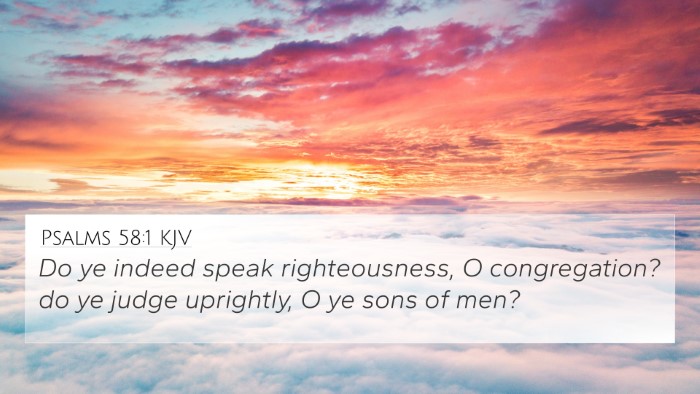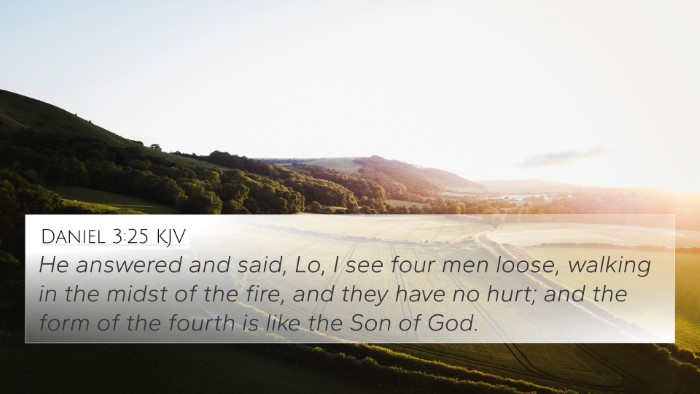Acts 16:37 - Summary and Interpretation
Verse: "But Paul said unto them, They have beaten us openly uncondemned, being Romans, and have cast us into prison; and now do they thrust us out privily? nay, verily; but let them come themselves and fetch us out."
Overview of Acts 16:37
This verse takes place in the context of Paul and Silas’s imprisonment in Philippi. After experiencing a miraculous release from prison, Paul asserts their rights as Roman citizens. This assertion highlights both the injustice of their treatment and the legal implications of their citizenship within the Roman Empire.
Key Themes in Acts 16:37
- Roman Citizenship: Paul emphasizes his rights, showcasing the significance of citizenship in the Roman world.
- Justice: The plea for acknowledgment after wrongful treatment points to the Christian value of justice.
- Public vs. Private Handling of Justice: Paul insists on a public acknowledgment of their innocence rather than a private discharge.
- Courage and Boldness: Paul's stance demonstrates great courage in the face of authorities.
Commentary Insights
Matthew Henry: Henry emphasizes Paul's legal expertise and the strategic nature of his response. His assertion about being beaten unjustly highlights the rightful protection afforded to Roman citizens, reflecting a divine hand in ensuring that the gospel spreads amidst opposition.
Albert Barnes: Barnes interprets this verse in light of the larger theme of suffering and endurance. He posits that Paul’s insistence on being treated with honor serves as both a testimony to their mission and as an opportunity for the authorities to recognize their mistake.
Adam Clarke: Clarke stresses the importance of public vindication. He notes that by demanding the magistrates come to escort them out, Paul not only seeks justice but also aims to make the authorities aware of the potential repercussions of their actions.
Bible Verse Cross-References
Acts 16:37 can be cross-referenced with several other biblical passages, highlighting connections and deepening understanding:
- Philippians 1:7 - Paul's defense and confirmation of the gospel.
- Romans 13:1-7 - The Christian's relationship to governing authorities.
- Acts 22:25-29 - Paul asserting his Roman citizenship during a beating.
- John 18:31 - Handling of legal matters by authorities in the context of justice.
- Acts 25:11 - Paul again invoking his rights as a Roman citizen for a fair trial.
- 2 Corinthians 11:25 - Paul's recounting of his sufferings, including unjust treatment.
- Luke 12:11-12 - Assurance of divine guidance when facing authorities.
Understanding Through Comparison
This verse helps illuminate the complexities of legal and moral implications when spreading the gospel. The assertive nature of Paul's dialogue with Roman authorities can be paralleled with other moments in scripture where God’s people advocate for justice.
Practical Application
For Personal Reflection: Consider how you would respond in situations of injustice. Does Paul’s boldness inspire you to stand up for truth and righteousness?
In Sermon Preparation: Utilize Acts 16:37 as a reflection point when discussing Christian citizenship and moral obligations, drawing on cross-references that highlight God’s call for justice.
Further Study Tools
- Bible concordance - To find similar themes across scripture.
- Cross-reference Bible study - Helps link relevant verses.
- Comprehensive Bible cross-reference materials - For deeper connections and studies.
This interpretation of Acts 16:37 provides a multifaceted understanding of the text, illustrating the deeper connections between biblical themes. Engaging with public domain commentaries enhances one’s grasp of scripture, fostering a richer theological study and practical application in a believer’s life.











